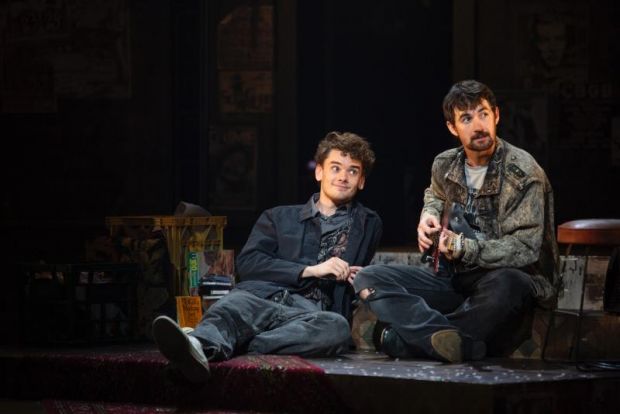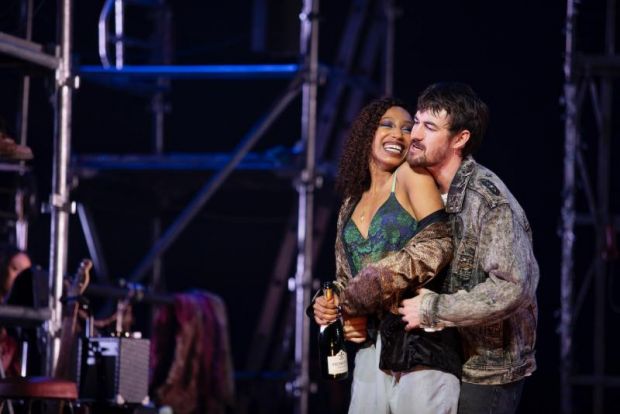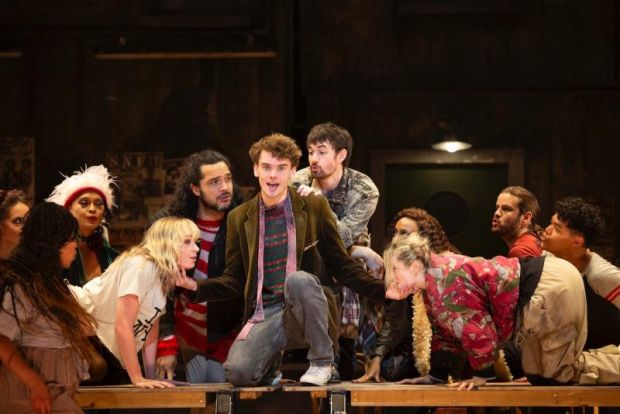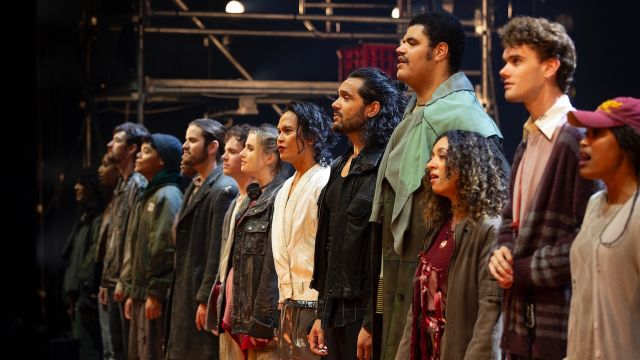Rent
The cultural resonance of this musical is powerful because of its deep historical heritage and its ability to accurately capture the bohemian nature of 1980s New York. Despite being set in such a specific time and place this production effectively highlights the enormous contemporary relevance of this timeless story.

The clash between impoverished, politically minded artists and greedy capitalism could not ring truer in a post-pandemic era of world-wide cost of living crises and endless horrifying conflicts. The echoes of Puccini’s opera La Bohème are made especially universal and pertinent in this show. The gritty social realism is beautifully recreated via an industrial ambience achieved by the pervasive presence of steel scaffolding and smoking or smouldering dark alley ways. Noah Mullins brings a refreshing innocence to the character, Mark, who essentially distils the images of the prevalence of AIDS, homelessness, and drug addiction through his documentary footage. The costuming is especially inventive in producing the unmistakable NY style. Yet, the design is also acutely contemporary and universal, making the historical connections particularly strong.

The performers are exceptional both in their vocal talent and their ability to portray the drama of the story. Rent employs rock music to capture the rebellious spirit of the characters and raise a range of harsh social realities. Even though the music is upbeat, with an emphasis on rhythm and melody, there are serious issues at the heart of the music and the libretto. The energetic and high-octane performance of the highly talented band (Andrew Worboys, Dylan Pollard, Konrad Ball, Nicholas Drescher, Tina Harris, Cypress Bartlett) always accentuates this tone. The weighty emotions are also emphatically conveyed via the incredible intensity of the vocals and the acting. This aids the grittiness of this production and its dedication to authenticity. In the Act I the acoustics are not always favourable and sometimes the important nuance in the lyrics is obscured by the chaotic and frenetic pace of the show. However, this is far less problematic in Act II where the production becomes more cohesive in this respect.

Highlights of the show include the canonical numbers such as Light my Candle, I Should Tell You and the indomitable Seasons of Love. Among the many, many strengths of the show (such as the magical and frequently dramatic lighting design), is the unequivocal celebration of gender and racial diversity. This is especially evident in the work of the highly talented transgender performer Carl De Villa who brings an unquestionable pathos to the role of Angel. The tempestuous relationship between Maureen (Calista Nelmes) and Joanne (Thndo) is also rendered highly sensual and erotic, and gender fluidity is almost the order of the day.

This is a rock musical whose social and aesthetic effect has reached seismic proportions. This production reiterates its importance and pertinence to almost any cultural context where the poor, oppressed and the marginalised can find a voice in the fabulousness of their poetic, insightful and arresting artistry. Bohemia definitely lives!
Patricia Di Risio
Images: @piajohnsonphotography
Subscribe to our E-Newsletter, buy our latest print edition or find a Performing Arts book at Book Nook.

